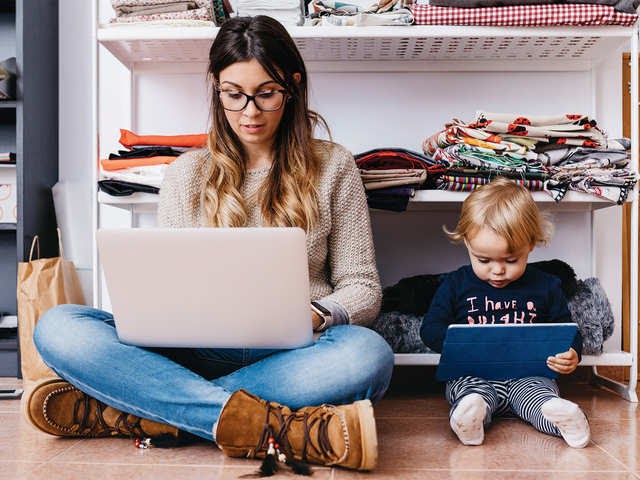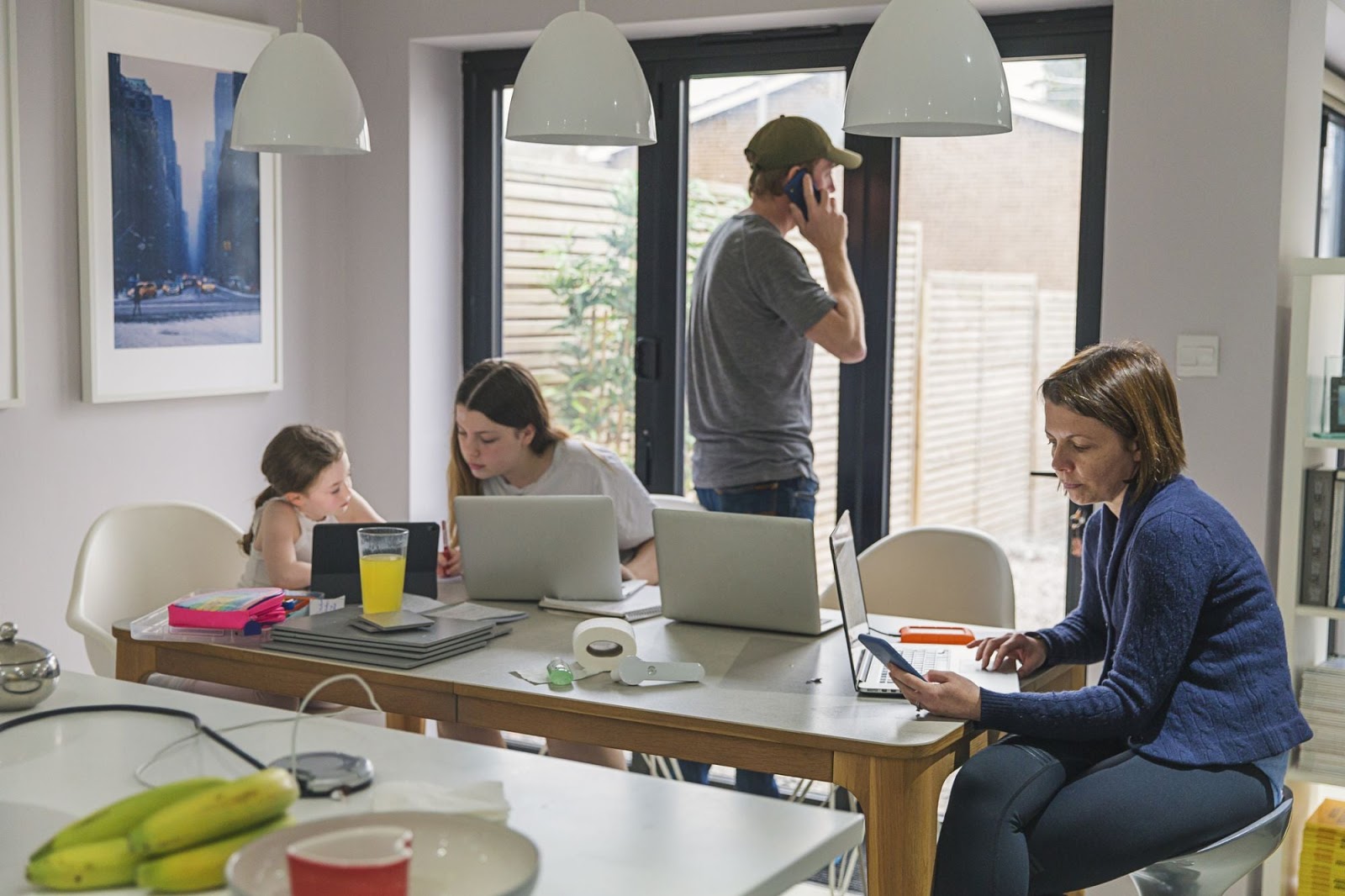THROUGH THE Q: The Possible Silver Lining of Covid-19 for Women at Work
Women are challenged with working as if they don’t have families, and parenting as if they don’t have careers. We face double standards that men don’t face. I won’t even get into the crummy parental leave policies, because it’s worth its own post (or several).
A man is applauded if he does the dishes, despite the fact that he lives in the house. A woman on the other hand, takes care of a disproportionate majority of housework, whether or not she works outside the home, and the world expects it of her.
For so long, women were penalized for time spent outside of work. Women still work for companies that don’t allow women the flexibility to find a work/life integration that works for them. Because of this, women end up withdrawing from the workforce since they sacrifice too much of their family (and childcare is extremely expensive), or transitioning to working part time, resulting in a significantly lower salary.
Women who have more flexible schedules are able to remain committed to work full time and are successful long term. In theory, they should be able to leave work early, attend their son’s soccer game, and make up any lost work another time. Any employee should be able to do this, unless they are in a field that requires in person interaction (a surgeon can’t operate from home). In practice, WFH life can still be looked at negatively. Some downers would say: “Women aren’t able to be as productive when they work remotely. Let’s not give women the flexibility to work remotely, because their work will suffer.”
The group of women I am referring to who would benefit from true flexibility are women who are currently working outside the home, either full time or part time, doing a job that usually requires/encourages facetime but can be done remotely, thanks to modern technology. The accurate argument for this group of women is: give them the flexibility to complete work when they can. Give them a project and a deadline, and it will be done well. As long as these women aren’t confined to a 9-6 job, they get sh*t done.

When Covid-19 hit, the downers were proven wrong. Everyone had to work from home (WFH), if they were lucky enough to remain employed. Unless a company’s industry was hit hard (like hospitality or travel), companies more or less maintained the same level of productivity. Surprise! Things don’t fall apart when people work remotely! Except I’d bet the badass parents who were previously working remotely were not surprised that the level of productivity didn’t drop.
In another sense that cannot be ignored, women are getting hit hard during Covid. Much harder than men. Women disproportionately take care of household labor and childcare. Now with everyone staying home, women are taking on even more work. An article in The Atlantic asserts that pandemics are disastrous for feminism. After each of the Ebola, SARS, swine flu, and bird flu outbreaks, men’s salaries returned to normal way sooner than women’s did. When caregiving needs to be done, who does it? People are practical, so, usually, the person who has the more flexible schedule or the person who is paid less gets tasked with the extra work. Due to the gender wage gap, and so many women already working part time because they were never given the flexibility to work on their own schedule, you guessed it--women handle the excess unpaid work. In this sense, women are getting the (extremely) short end of the stick.
This information aside, working from home has been seen in a new light. When we as a society get out of this pandemic tunnel, will a truly flexible work schedule be at the other end?

Now that management (ie: men) have seen that they and everyone else can be productive working from home for months at a time, now we may finally see a paradigm shift in the workplace. Will the remote productivity realization allow employees to finally work on a flexible schedule, from home when needed? Will we have a blessing to WFH without facing backlash? I hope so. And, did it really take a global pandemic and months of self-quarantining to come to this realization?
Let’s hope WFH flexibility is here to stay, for all individuals. I have hope that when I’m a mom, spending a few days a week at home will not be stigmatized. It won’t be assumed I am slacking if I am not “showing face.” My commitment to my job won’t be questioned when I work remotely, and my value will not be directly proportional to my time spent in the office.